Dogs have varying appetites, but some breeds are notorious for their insatiable hunger and love for food. These dogs often treat every meal like an all-you-can-eat buffet, which can be both amusing and challenging for their owners. Managing their diet is crucial to prevent obesity and other health issues. Understanding these breeds’ characteristics and dietary needs can help ensure they stay healthy while satisfying their hearty appetites. Here are 12 dog breeds that are known for their voracious eating habits. From popular breeds to lesser-known ones, each of these dogs has a reputation for loving their food.
12. Labrador Retriever
Labrador Retrievers are one of the most popular dog breeds globally, known for their friendly and outgoing nature. However, they are also infamous for their insatiable appetite. Labs have a genetic predisposition to overeating, often acting as if they are perpetually hungry. This trait, combined with their love for food, can lead to obesity if not carefully managed. Labs will eat anything they can get their paws on, including leftovers and trash. Owners need to be diligent about portion control and providing a balanced diet to keep their Labs healthy. Regular exercise is also crucial to burn off their extra energy and prevent weight gain.
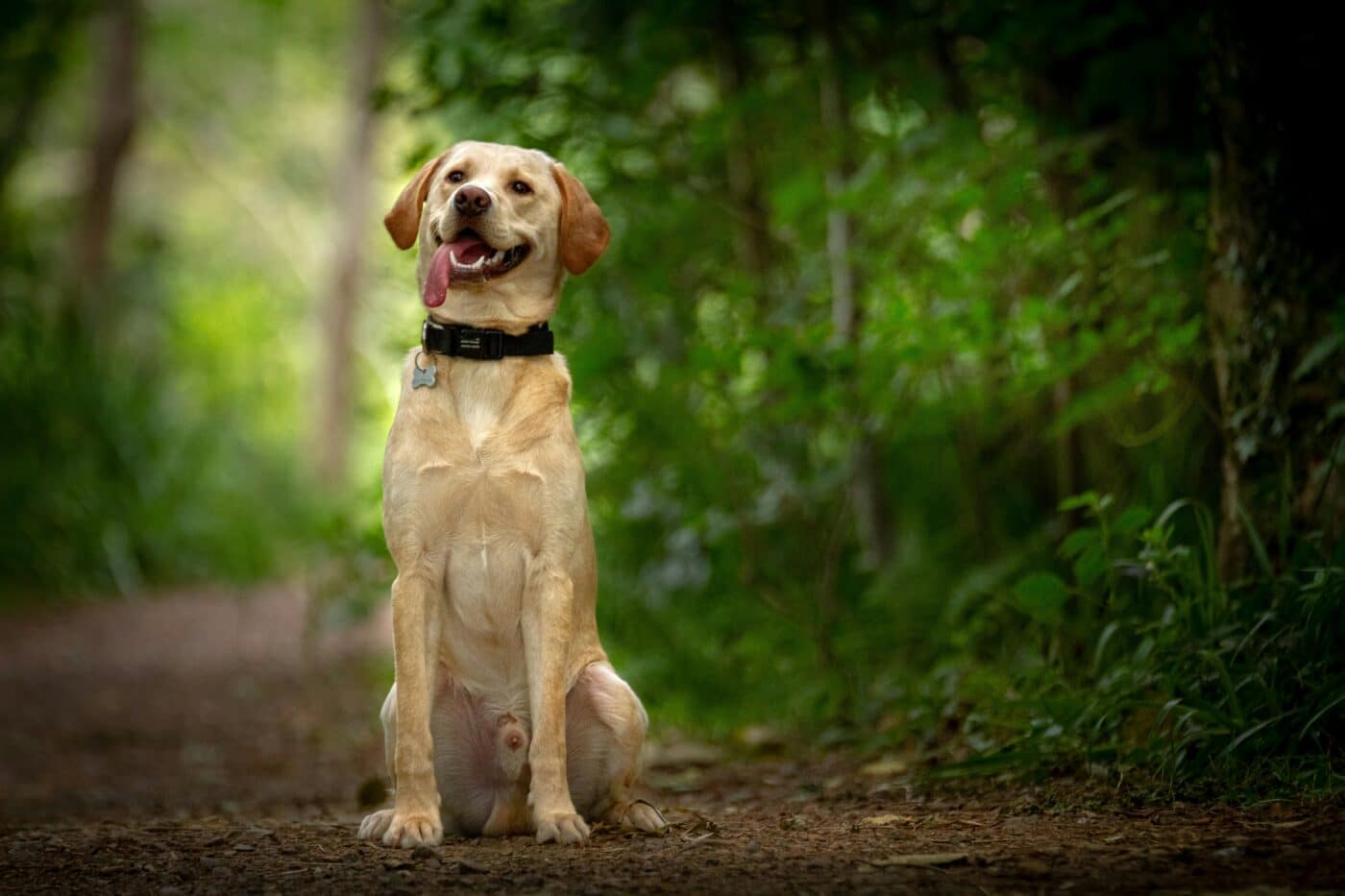
11. Beagle
Beagles are small to medium-sized hounds known for their friendly and curious nature. Their keen sense of smell and hunting instincts make them food-driven, often treating every meal like a feast. Beagles are notorious for scavenging and will go to great lengths to find food. Their love for eating can lead to weight issues if not monitored closely. Owners should ensure that their Beagles get plenty of exercise and adhere to a strict feeding schedule. Providing interactive toys that dispense food can help satisfy their food cravings while keeping them mentally stimulated.
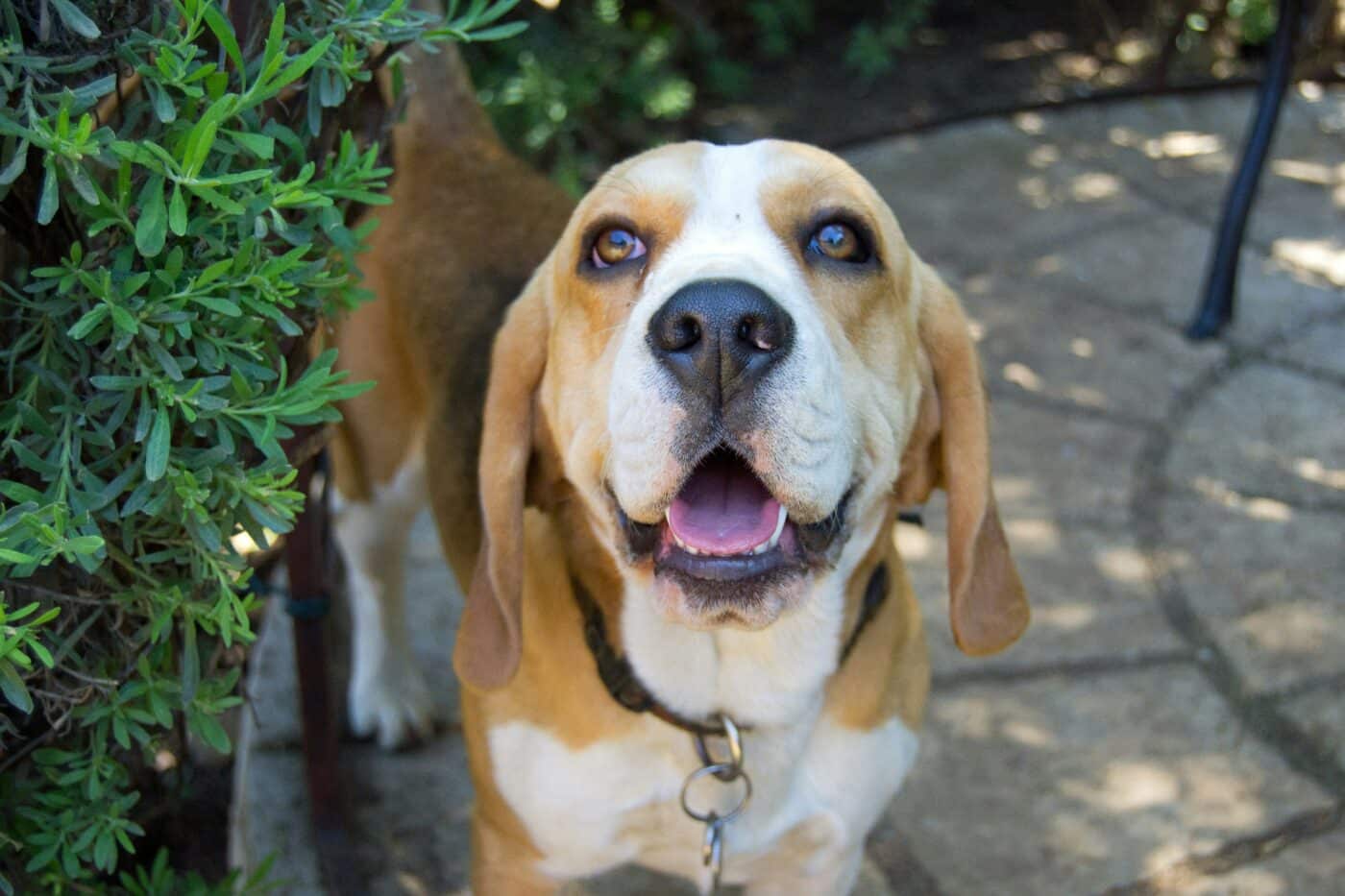
10. Dachshund
Dachshunds, with their long bodies and short legs, are charming and spirited dogs. However, they are also known for their voracious appetites. Dachshunds tend to overeat if given the chance, often begging for food and acting as if they haven’t been fed in days. This breed is prone to obesity, which can exacerbate their predisposition to back problems. Owners should be cautious about their Dachshund’s diet, providing measured portions and avoiding excessive treats. Regular exercise, such as walks and playtime, is essential to keep them fit and healthy.

9. Basset Hound
Basset Hounds are laid-back and gentle dogs with a strong sense of smell. This breed is highly food-motivated, often treating mealtime as a grand event. Basset Hounds can quickly gain weight if their diet is not controlled, leading to health issues such as joint problems and heart disease. Their love for food means they can be prone to scavenging and begging. Owners should provide a balanced diet and ensure that Basset Hounds get sufficient exercise to maintain a healthy weight. Regular vet check-ups can help monitor their weight and overall health.

8. Cocker Spaniel
Cocker Spaniels are known for their affectionate and friendly nature. They are also one of the breeds that treat every meal like an all-you-can-eat buffet. Cocker Spaniels tend to overeat, leading to obesity if their food intake is not regulated. They often beg for food and can be very persuasive. To prevent weight gain, owners should measure their food portions carefully and avoid giving too many treats. Regular exercise and a balanced diet are crucial for keeping Cocker Spaniels healthy and fit.
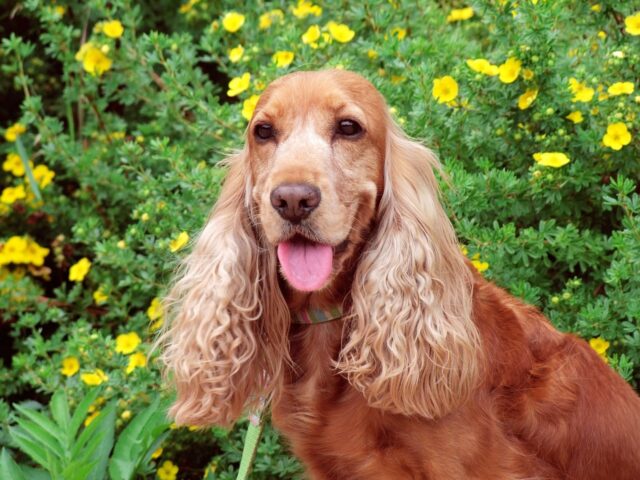
7. Pug
Pugs are small, affectionate dogs with big personalities. They are also known for their love of food and tendency to overeat. Pugs will eat as much as they are given and often beg for more. Their compact size and low energy levels make them prone to weight gain and related health issues. Owners should be strict about portion control and provide a diet that meets their nutritional needs without overfeeding. Regular walks and playtime are important to help Pugs maintain a healthy weight and overall well-being.
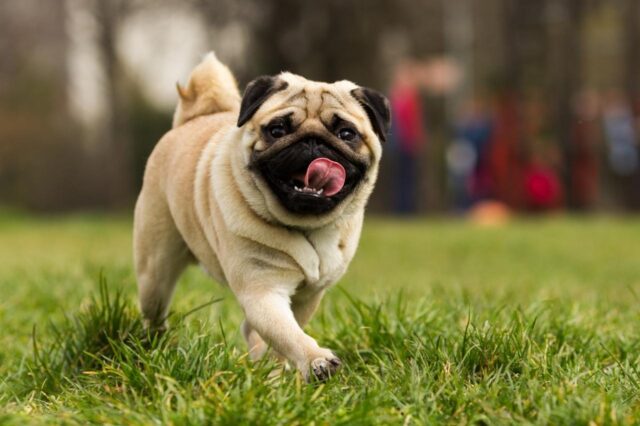
6. Golden Retriever
Golden Retrievers are friendly, intelligent, and eager-to-please dogs. They also have a well-known love for food. Golden Retrievers can quickly become overweight if their diet is not carefully monitored. They are prone to begging and will eat anything they find, making it essential for owners to control their food intake and avoid leaving food within reach. Regular exercise, including walks and play sessions, is important to keep Golden Retrievers fit and healthy. Providing a balanced diet and avoiding excessive treats will help maintain their ideal weight.
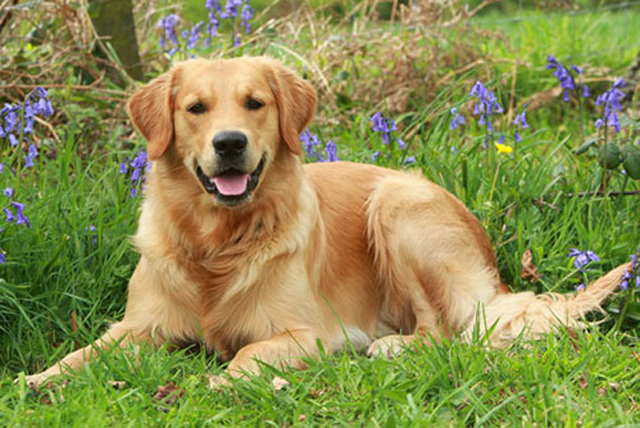
5. Shetland Sheepdog
Shetland Sheepdogs, or Shelties, are intelligent and energetic dogs with a strong herding instinct. They also have a notable appetite and can be prone to overeating. Shelties often act as if they are always hungry, leading to the risk of obesity if their diet is not managed properly. Owners should measure their food portions carefully and ensure they get plenty of exercise to burn off excess calories. Regular training and mental stimulation can also help keep Shelties fit and healthy, preventing them from becoming overweight.
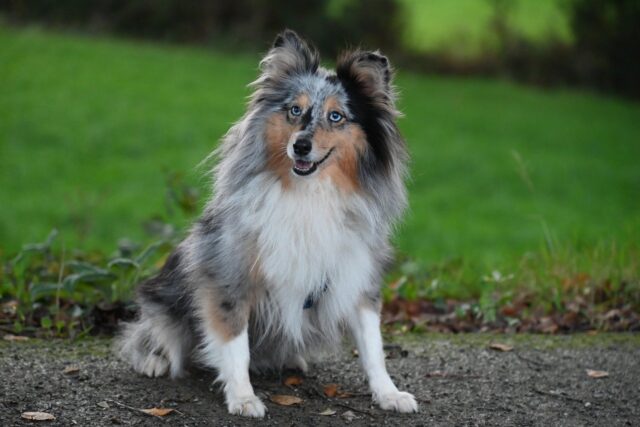
4. Pembroke Welsh Corgi
Pembroke Welsh Corgis are small, sturdy dogs with a big appetite. They are known for their love of food and can quickly become overweight if their diet is not regulated. Corgis often beg for food and can be very persistent. To prevent weight gain, owners should provide measured portions and avoid overfeeding. Regular exercise, such as walks and playtime, is essential for keeping Corgis fit and healthy. Providing a balanced diet and monitoring their weight can help prevent obesity and related health issues.
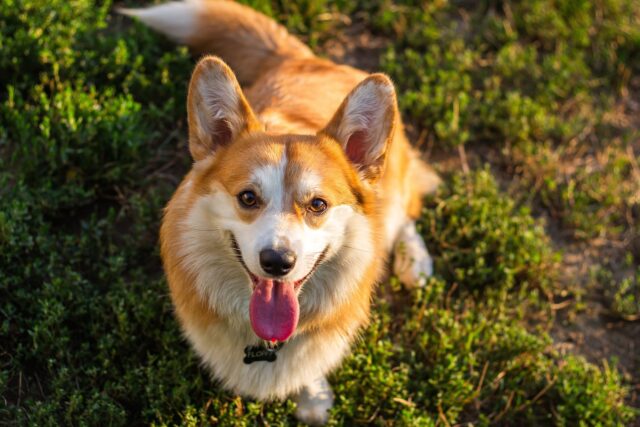
3. Australian Shepherd
Australian Shepherds are intelligent, energetic dogs known for their herding abilities. They also have a notable appetite and can be prone to overeating if not monitored. Australian Shepherds are highly food-motivated, which can be beneficial for training but also requires careful management of their diet. Owners should measure their food portions and provide plenty of exercise to keep them fit. Regular activities, such as agility training and herding exercises, can help burn off excess energy and prevent weight gain.

2. Border Collie
Border Collies are highly intelligent and energetic dogs known for their herding skills. They also have a strong appetite and can be prone to overeating. Border Collies are very food-motivated, which can be useful for training but also means their diet needs to be carefully managed. Owners should measure their food portions and ensure they get plenty of exercise to stay fit and healthy. Regular activities, such as obedience training and herding exercises, can help keep Border Collies mentally and physically stimulated, preventing weight gain.
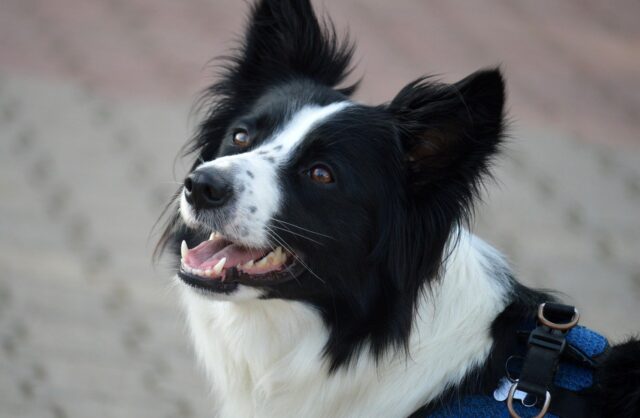
1. Alaskan Malamute
Alaskan Malamutes are large, powerful dogs known for their endurance and strength. They also have a big appetite and can quickly become overweight if their diet is not regulated. Malamutes often act as if they are always hungry, leading to the risk of obesity if their food intake is not controlled. Owners should measure their food portions carefully and ensure they get plenty of exercise to burn off excess calories. Regular activities, such as sledding and hiking, can help keep Malamutes fit and healthy. Providing a balanced diet and avoiding excessive treats will help maintain their ideal weight.
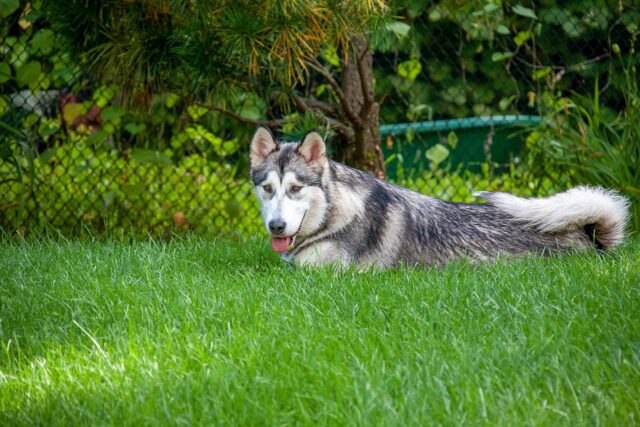
In summary, managing the diet of dog breeds with insatiable appetites is crucial to prevent obesity and related health issues. Each of the breeds listed above has a reputation for treating every meal like an all-you-can-eat buffet, but with careful portion control, regular exercise, and a balanced diet, owners can ensure their dogs stay healthy and happy. Understanding these breeds’ characteristics and dietary needs will help owners provide the best care for their food-loving canine companions.
 Toledo, United States.
Toledo, United States.